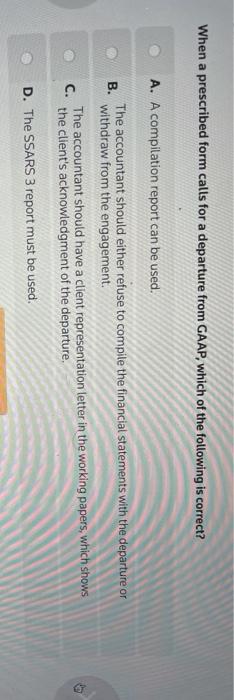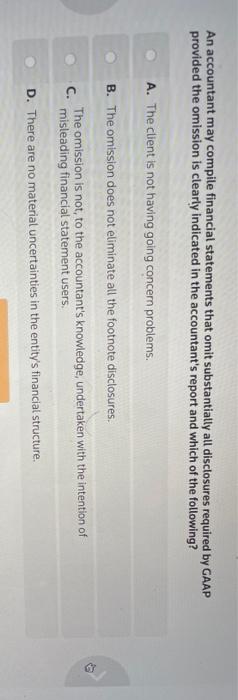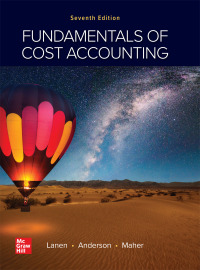In a compilation engagement, the client can choose to omit all disclosures required by GAAP. This is appropriate as long as which of the following is true? A. The accountant has no reason to believe that the lack of disclosures is being done to mislead a third party. The accountant specifically indicates in the compilation report that he or she concurs with the elimination of all disclosures. B. C. The compilation report does not mention the lack of disclosures. The disclosures are insignificant with respect to the client's understanding of the financial statements D. When a prescribed form calls for a departure from GAAP, which of the following is correct? A. A compilation report can be used. The accountant should either refuse to compile the financial statements with the departure or B. withdraw from the engagement. C. The accountant should have a client representation letter in the working papers, which shows the client's acknowledgment of the departure. D. The SSARS 3 report must be used. An accountant may compile financial statements that omit substantially all disclosures required by GAAP provided the omission is clearly indicated in the accountant's report and which of the following? A. The client is not having going concem problems. B. The omission does not eliminate all the footnote disclosures. The omission is not, to the accountant's knowledge, undertaken with the intention of C. misleading financial statement users. D. There are no material uncertainties in the entity's financial structure, An accountant performing a compilation or review engagement should consider the entity's ability to continue as a going concern for a reasonable period of time not to exceed which of the following? A. One year beyond the date of the financial statements being compiled or reviewed. B. One year beyond the end of the entity's fiscal year. C. Six months beyond the calendar year-end following the compilation or review engagement. D. Six months beyond the date the entity would be required to file bankruptcy. SSARS do not apply to financial statements when which of the following occurs? A. The accountant is engaged by an attorney to do work protected by the attorney's work product privilege and the financial statements will be submitted to the client company, B. The client is in litigation with a former customer C. The financial statements are prepared for a law firm, D. They are submitted in conjunction with pending or potential legal or regulatory proceedings before a trier of fact











